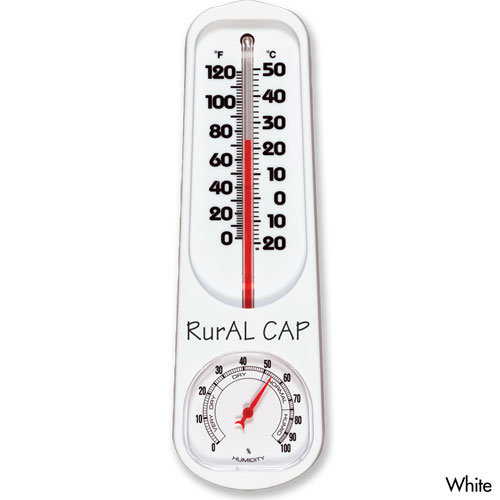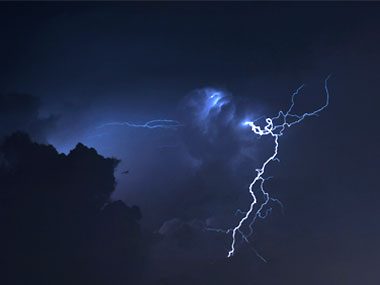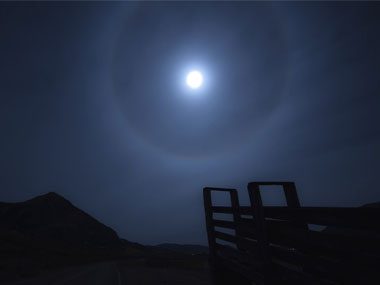eDJ_
Well-known member
In my Boy Scouting days I learned about weather when out in the wild. I thought it may be worthwhile
to start a thread about some inexpensive things that can be made or purchased inexpensively, and carried
along as a kit to enable a traveler to be safe with regards to weather.
Today most of us rely on a Cell Phone, Lap Top, or Weather Radio but we have to bear in mind that those
measurements may be taking place miles away from our own location. For a few bucks we can purchase
some sportsman's devices and make simple tools almost free.
A Sportsman's digital LCD compass with altimeter, barometer, clock, weather forecast, time , calendar, thermometer ,and back light can be purchased for around $20 dollars. The barometer is automatically
corrected by the altimeter.

Inexpensive thermometers with Hygrometers can be found at Dollar Tree
Making a simple weather vane can be accomplished with a plastic straw, some card board, a pencil, a straight pin, and some cellophane tape. The sharp end of the pencil can be placed into a paper cup and filled with sand or small pebbles. This Youtube video shows how easy.
With a barometer reading and wind direction you can use this scale to determine the weather events in your own area
USA Today Using winds and a barometer to make forecast
http://usatoday30.usatoday.com/weather/wfbarrow.htm
If you wonder about the wind speed there is a system which only uses your observation of the environment to determine the approximate wind speed.
The Beaufort wind scale of approximate wind speed
http://www.spc.noaa.gov/faq/tornado/beaufort.html
if on land
http://www.almanac.com/beaufort-wind-force-scale#
Some interesting devices are made for school kids which may be inexpensive enough and have some
merit for the traveling Meterologist. One such device contains a thermometer reading in F & C, a rain gauge,
a body that acts as a wind vane and horizontal flap that serves as a wind speed gauge. $8 dollars.

http://www.hometrainingtools.com/mini-weather-station

This would provide for a means to measure your barometric pressure,
Wind Direction, Wind Speed, Temperature, Humidity, and Rain Fall.
Again, if you're out boondocking and far from a Town where the Radio or TV station is reporting the
weather conditions there, that information may be of little beneficial to you.
This bit is from a Readers Digest and it regards paying attention to your environment to
gain insights about the weather in your locality.
When you are in camp, are you concerned much with the weather ? For your comfort or safety ?
Myself, I'd print out the USA Today Barometer & wind forecasting page, and the Beaufort scale to have
in a kit with the sportsman's digital compass if I were going to be on the road full time. I'd still have my electronic devices if I were closer to a Town where the report would be accurate. Like staying on a Walmart parking lot.
to start a thread about some inexpensive things that can be made or purchased inexpensively, and carried
along as a kit to enable a traveler to be safe with regards to weather.
Today most of us rely on a Cell Phone, Lap Top, or Weather Radio but we have to bear in mind that those
measurements may be taking place miles away from our own location. For a few bucks we can purchase
some sportsman's devices and make simple tools almost free.
A Sportsman's digital LCD compass with altimeter, barometer, clock, weather forecast, time , calendar, thermometer ,and back light can be purchased for around $20 dollars. The barometer is automatically
corrected by the altimeter.
Inexpensive thermometers with Hygrometers can be found at Dollar Tree
Making a simple weather vane can be accomplished with a plastic straw, some card board, a pencil, a straight pin, and some cellophane tape. The sharp end of the pencil can be placed into a paper cup and filled with sand or small pebbles. This Youtube video shows how easy.
With a barometer reading and wind direction you can use this scale to determine the weather events in your own area
USA Today Using winds and a barometer to make forecast
http://usatoday30.usatoday.com/weather/wfbarrow.htm
If you wonder about the wind speed there is a system which only uses your observation of the environment to determine the approximate wind speed.
The Beaufort wind scale of approximate wind speed
http://www.spc.noaa.gov/faq/tornado/beaufort.html
if on land
http://www.almanac.com/beaufort-wind-force-scale#
Some interesting devices are made for school kids which may be inexpensive enough and have some
merit for the traveling Meterologist. One such device contains a thermometer reading in F & C, a rain gauge,
a body that acts as a wind vane and horizontal flap that serves as a wind speed gauge. $8 dollars.

http://www.hometrainingtools.com/mini-weather-station

This would provide for a means to measure your barometric pressure,
Wind Direction, Wind Speed, Temperature, Humidity, and Rain Fall.
Again, if you're out boondocking and far from a Town where the Radio or TV station is reporting the
weather conditions there, that information may be of little beneficial to you.
This bit is from a Readers Digest and it regards paying attention to your environment to
gain insights about the weather in your locality.
Crickets can tell you the temperature

A chorus of chirps at night isn't just lovely atmosphere—it's a musical thermometer, too. Studies have shown that crickets regulate the rhythm of their chirps based on the temperature outside. According to the Farmer's Almanac, to convert Cricket to Fahrenheit, count the number of chirps you hear in 14 seconds, then add 40. (It's shockingly accurate.)
Storm heading your way? Count between the lighting and thunder

Light travels much faster than sound (186,291 miles per second versus 1,088 feet per second) and the difference between the two can give you a fair measure of distance. As soon as you see a flash of lighting, start counting the seconds until you hear the roar of thunder. Divide the number of seconds by five, and you’ll know how many miles away from you lightning just struck. Try this trick a few times in a row, and you'll know right away whether a storm is coming or going.
Birds fly higher in fair weather

Most birds possess what is called the Vitali organ, a special middle-ear receptor that senses extremely minute changes in air pressure. As atmospheric pressure falls before a storm, birds fly lower or huddle on telephone wires to escape the sudden pressure in their heads. If you see a flock flying high in the sky, chances are it’s nice weather, ahoy.
Halo around the moon? Storm's comin' soon

According to National Oceanic and Atmospheric Administration, there is some merit to the old folk saying, "when a halo rings the moon or sun, rain's approaching on the run." A so-called halo forms around the moon when ice crystals from high-altitude cirrus clouds reflect and refract incoming light. Cirrus clouds don't bring rain, but they are a good indication that a low-pressure warm front is a few days away, often with a storm in tow.
When you are in camp, are you concerned much with the weather ? For your comfort or safety ?
Myself, I'd print out the USA Today Barometer & wind forecasting page, and the Beaufort scale to have
in a kit with the sportsman's digital compass if I were going to be on the road full time. I'd still have my electronic devices if I were closer to a Town where the report would be accurate. Like staying on a Walmart parking lot.











































































